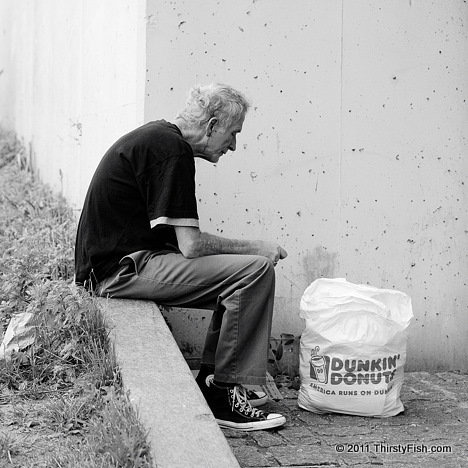Poverty, Homelessness, Loneliness / Opportunity

"If you are living in poverty, it's your fault" is a rant increasingly argued by some politicians and political "experts" in the media. Poverty is not an easy thing to characterize. In the United States, it is defined as: the threshold below which families or individuals are considered to be lacking the resources to meet the basic needs for healthy living; having insufficient income to provide the food, shelter and clothing needed to preserve health. This threshold is called the "absolute poverty line". By the official account, in 2011, 15.1% of the general population lives in poverty.
The "absolute poverty line" approach to poverty, although not arbitrary, is problematic. It does not distinguish between those who are giving it all their best and those who are simply bludgers. Consequently, both "your poverty is your own fault" and "it is the fault of society" arguments are invalid and those arguing those points in an absolute manner are being disingenuous. But, who is more at fault, the individual or society?
As Abraham Lincoln has pointed out, tyranny takes many forms. When despots oppress and kill their own people, tyranny is apparent. Unfortunately this form of tyranny still exists today in many parts of the world. Economic Tyranny on the other hand is often well disguised - it is in the fine print. The less money you have, the higher interest you have to pay. The less money you have, the less education you can afford. The less you get paid, the more you have to work and the less time you have for helping your children with their homework. And, we are not even talking about jobs being shipped overseas.
Many people living in poverty are not looking for handouts. They are looking for opportunities. Opportunity separates the bludgers from the truly underprivileged. A quick review of history will consistently show that, where greater opportunity exists and more people participate, countries prosper. Where the majority are excluded and opportunity is taken away, governments fail. It is pretty meaningless to talk about poverty without first looking at diminished opportunity.
Posted
- Fri 2011-10-21
Captured
- 2011-06-04
- Philadelphia, PA


